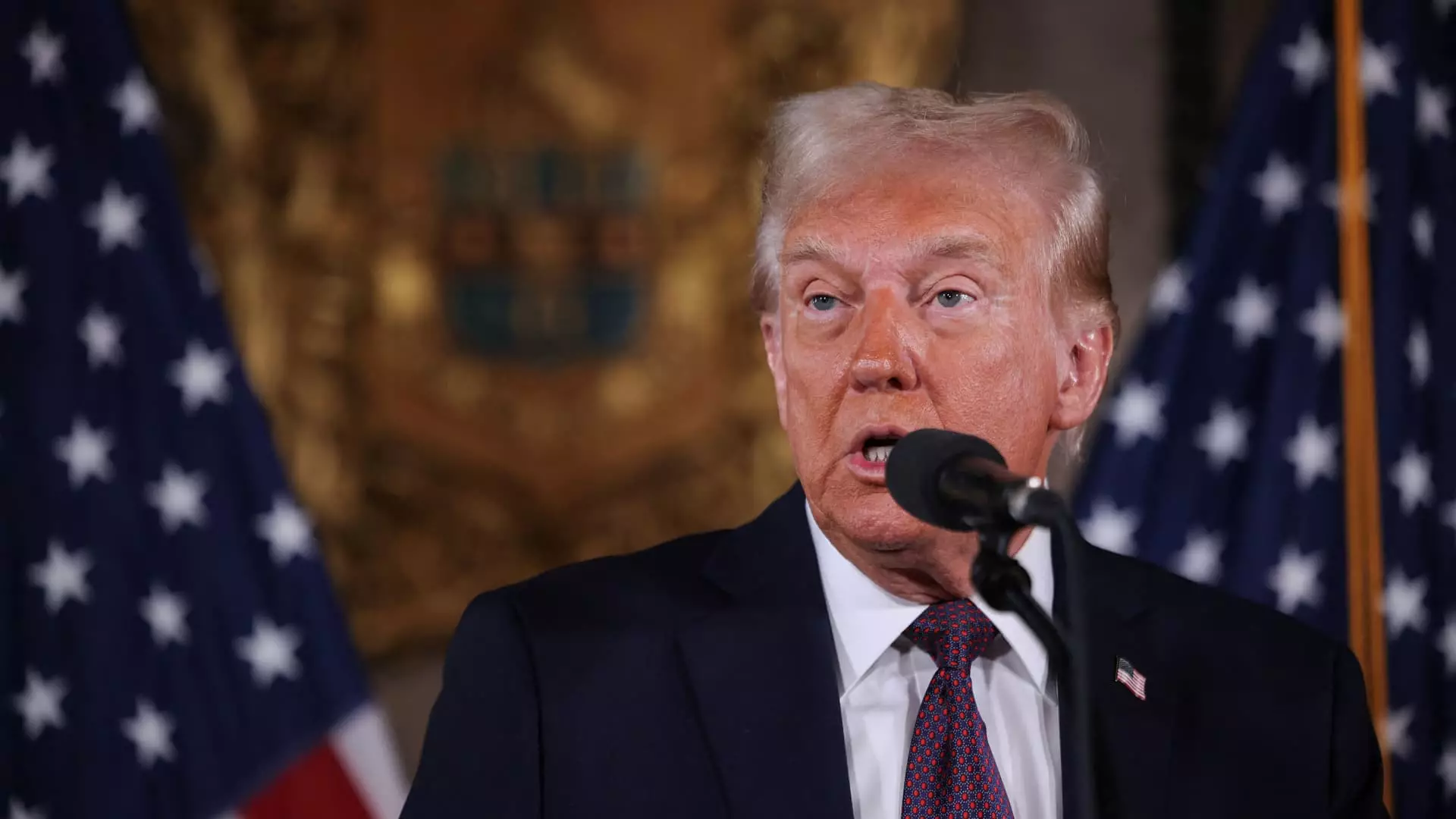In a striking move reflecting a shifting landscape of international investment, President-elect Donald Trump revealed a significant commitment of $20 billion aimed at establishing new data centers throughout the United States. This ambitious initiative, announced at his Mar-a-Lago estate, associates the newly elected president with a major player in real estate development—Emirati billionaire Hussain Sajwani, founder of DAMAC Properties. This partnership marks a pivotal moment in the intersection of politics and business.
Trump characterized Sajwani’s investment as potentially exceeding the initial figure, with statements hinting that the final amount could more than double. The scope of this investment includes key states such as Texas, Arizona, and Michigan, which are set to serve as the initial hubs for the planned data centers. Sajwani himself indicated a profound sense of optimism stemming from Trump’s election, suggesting that the victory opened doors for substantial investment in the U.S. market, which the developer had been planning for several years.
This sentiment underscores an important trend: foreign business leaders are increasingly viewing the U.S. as a promising landscape for investment, driven by the unique policies and promises made by the Trump administration, specifically the attractiveness of substantial tax breaks and streamlined administrative processes for large investments.
The commitment to establish data centers can have far-reaching implications for America’s technological infrastructure. Enhanced infrastructure can lead to a bolstered economy through job creation, particularly in markets that are underserved in tech resources. The undertaking not only promises immediate jobs but also aims to long-term economic benefits as these data centers begin functioning, therefore contributing significantly to the digital ecosystem essential for modern business operations.
Such investments also highlight a growing trend where technology and real estate can forge partnerships. The expectations for job creation and technological advancement paint an optimistic picture for regions involved, especially as remote work and digital services continue to proliferate.
Sajwani’s pledge follows a pattern of foreign leaders announcing substantial investments in the U.S. post-Trump’s election. Notably, Softbank’s CEO Masayoshi Son pledged $100 billion to support job creation, highlighting the overall interest in U.S. markets driven by favorable political conditions. This momentum not only signifies confidence in the political climate but also reflects a broader confidence in the U.S. economy’s potential under the incoming administration.
Furthermore, incentives such as expedited permits for investments over a billion dollars serve to entice foreign stakeholders. This tactic is part of a larger strategic vision to solidify the U.S. as a forefront player in the global economy and technology sector.
As the Trump administration prepares to take the reins, the stakes for foreign investment in the U.S. are high. The promise of substantial contributions like Sajwani’s $20 billion investment signals a transformation within the U.S.’ approach to global partnerships and economic growth. The success of such initiatives could serve as a blueprint for future engagements, determining not only the administration’s economic policy legacy but also the trajectory for technological innovation and job creation across the nation.

Leave a Reply